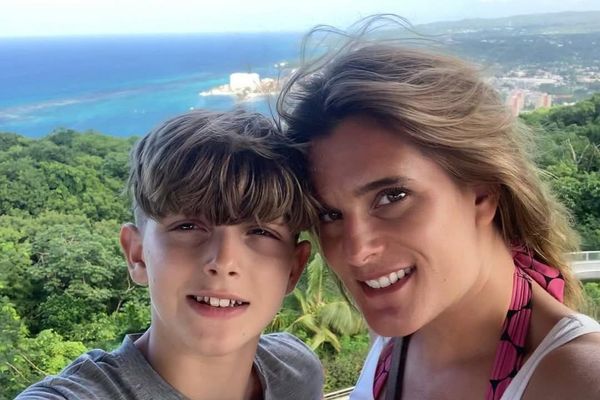Taiwanese voters will elect their next president on Saturday, along with legislators and political party votes, a deciding factor on the funding political parties receive and the allocation of party-list seats.
A sense of despair echoing similar sentiments from the 2014 Sunflower Movement has permeated Taiwan’s younger population. Taiwanese youth are worried about their freedoms being stripped away by Beijing’s coercion, exacerbated by the months-long Hong Kong protests.
In Taiwan, the generations born after 1980 are often referred to as “naturally independent” (天然獨). Many of them are supporters of incumbent President Tsai Ing-wen, who has been very vocal about defending Taiwan’s democracy and freedoms. On the other hand, they perceive the opposition candidate Han Kuo-yu as having the power and intention to “sell” Taiwan to China for short term business gains.
In light of that sentiment, various youth groups across Taiwan have organized as savvy online fact-checkers and street canvassers, attempting to convince the elderly voters who support China-friendly Han to “wake up.” Youth volunteer groups have formed a social media alliance, from Facebook groups to LINE chatrooms, as well as official youth initiatives such as “Go Home to Vote” sanctioned by the ruling Democratic Progressive Party.

Since Taiwan requires voters to physically cast their ballot based on their household registration address, many young voters who have left their hometown to work in big cities like Taipei would need to travel back home to vote. However, the competition to purchase a train ticket prior to the election day is brutal. Taking off work early for the sake of voting might also seem like a hassle to some.
Online groups combating “fake news” and encouraging young canvassers have emerged as a result. They actively send messages and memes to their family chatrooms via LINE, a widely used messaging app in Taiwan. These young activists also canvass at train stations, major intersections, and shopping malls, starting conversations with voters across all generations.
A challenge increasingly prevalent in liberal democracies is the rise of polarizing echo chambers, as voters are confined within like-minded and subscribe to select few news outlets, sealing off news countering their perceived perspective.
Ricky Tsai, 24, a graduate student who volunteered to canvass with a non-partisan group formed online in 2018 in support of marriage equality, told The News Lens, “I felt I could not just sit in front of my computer claiming to care about public issues. For positions and values you believe in, you should bravely jump out and defend them, take to the streets to convince people, in letting more people accept your positions and values.”
He also greatly admires other volunteer youth groups as they are completely self-motivated. “Taking to the streets with passionate volunteers especially touches me because most of them usually have full-time jobs, but are willing to take time off or spend weekends and evenings to talk to people with different viewpoints, while also funding flyers and stickers they hand out,” Tsai said.

Jimmy Lin, 30, another volunteer in Taipei, works during the day while spending evenings divided between canvassing and fact-checking. “Turning 30, and voting first time in the presidential election, my conscience tells me that Taiwan can no longer afford to have voters like my former self, indifferent or at most posting memes online bashing Taiwan’s political gaffes,” he told The News Lens.
Political parties that represent progressive values are also attracting more young volunteers. The DPP has a dedicated group called Democratic Progressive Youth (DPY), which organizes canvassing events and creates online content to empower the youth vote.
DPY’s leader, Aman Wu, 31, a former Sunflower Movement activist, pointed to the disappointing referendum results from 2018 as a slap to the progressive Taiwanese voters. He also stressed that undecided voters will be key in this election.
Tsai, who also volunteers for the DPY, said the DPY activities provide a platform to improve his public speaking skills. He’s often speaking directly to voters with an amplifier on the streets.
“I recall when I first picked up the speaker, I was shaking from reading straight off my draft speech. The greatest benefit in being part of DPY is gaining confidence while supporting someone I believe is the most qualified in protecting Taiwan,” Tsai said.
Some youth groups are also involved with the Kuomintang (KMT), the China-friendly party. However, they have recently seen defectors, in part due to the KMT’s party platform distancing from progressive values that appeal to the younger generations.

Leo Luo, 23, a former spokesperson of the KMT Youth Department, stepped down last summer to join DPP efforts in his hometown, Tainan. He suggested that previously pro-KMT young voters are increasingly disappointed with the party’s opposition to marriage equality, resistance to transitional justice, and cozying up to the authoritarian regime in Beijing.
“The KMT is no longer protecting the ideals they claim to represent, with the party now in full blast of China-friendly policies harmful to democratic values the KMT’s founding fathers have sacrificed their lives to uphold,” Luo told The News Lens.
He said the DPP is in a better position in protecting the ROC and Taiwan’s progressive values, but a Han presidency would lead to the end of the ROC and the country’s hard-earned democracy.
While the outcome of the January 11 elections remains to be seen, its impacts on Taiwan’s younger generations have been evident in the increasing participation of youth in politics and activism. There’s no storming of government buildings like the 2014 Sunflower Movement, but young voters will once again make their voices heard by casting their ballot this weekend.
READ NEXT: Taiwan 2020: Women Running for Legislature
TNL Editor: Daphne K. Lee (@thenewslensintl)
If you've enjoyed this article and wish to receive more story updates, please be sure to follow us on Facebook.







